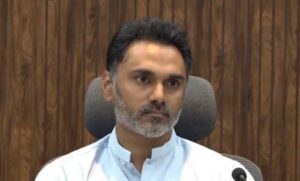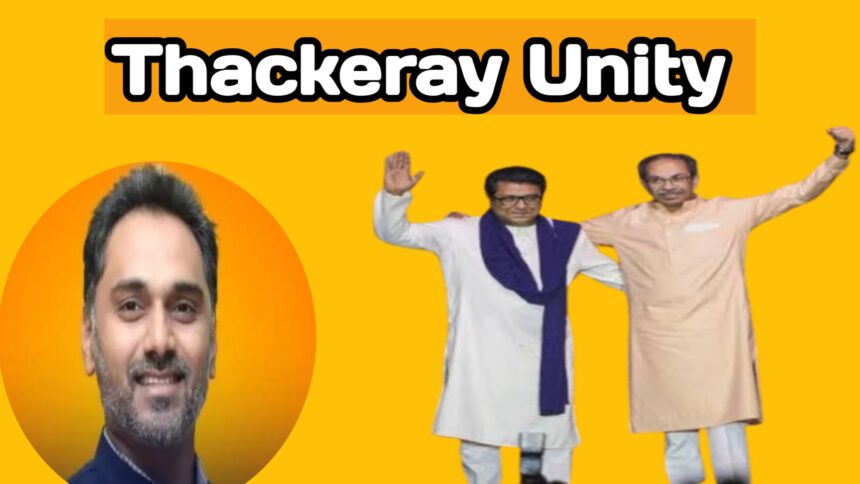By | Nisar Shaikh
Mumbai – In a dramatic turn ahead of the Brihanmumbai Municipal Corporation (BMC) elections, Uddhav Thackeray and Raj Thackeray came face-to-face today, sparking speculation about a possible reunion of the estranged Thackeray cousins. For many, the meeting evoked nostalgia of Shiv Sena’s once-united Marathi vote bank, but political voices quickly poured cold water on the idea, branding it a “last-minute, futile gamble.”
State Minister Yogesh Kadam was among the first to respond, saying: “Even if Uddhav and Raj unite, it will not benefit anyone. The Marathi voter is not easily swayed by symbolism. What matters is what was done for their community.”

Criticism soon followed from within opposition circles, where Uddhav Thackeray’s chief ministerial legacy came under fire. Detractors alleged that during his tenure, he “failed to secure affordable housing for Marathi families in Mumbai and did little to improve their socio-economic condition.” This line of attack signals that any Thackeray unity move will face skepticism unless backed by clear promises.
On the other side, Shiv Sena (UBT) leader Sanjay Raut pushed back strongly, accusing rivals of manufacturing controversy. “They are spreading lies and misinformation. This is nothing but politics of distraction,” he said, underlining that the Sena’s focus remains on grassroots mobilization.
Observers believe today’s meeting is a tactical attempt to consolidate Marathi votes, which remain deeply fragmented. Yet, the long-standing rivalry between Uddhav and Raj raises doubts on whether voters will trust such an alliance. For many, it could be seen as too little, too late.
Meanwhile, the broader political canvas in Maharashtra remains tense. Kadam reassured OBC communities that their quota is secure: “There is no conflict between Marathas and OBCs. The law has tested everything.” His remarks appeared aimed at calming nerves after weeks of reservation-related protests.
The shadow of the Vice-Presidential election also hung over today’s exchanges. Kadam noted that the opposition’s tally of 452 votes was their “only achievement,” emphasizing that cross-voting in Maharashtra should serve as a wake-up call for their leadership.
Adding another twist, NCP leader Rohit Pawar seemed to extend soft support to Ajit Pawar, which insiders suggest stems more from family dynamics than political calculation.
Today’s Uddhav–Raj meeting may have stirred excitement in political circles, but the hard reality is that both cousins face credibility challenges. For Marathi voters, symbolic unity might not be enough—the real test will be whether promises translate into tangible gains in Mumbai’s civic and state politics.








